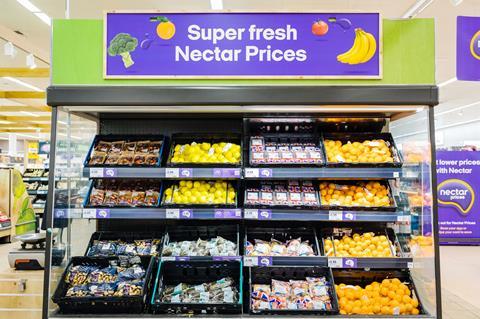
Mandatory reporting on the healthiness of UK food sales will promote transparency, accountability, and consumer choice.
The context for change now is compelling. Around two-thirds of people are living with excess weight and obesity in the UK, and the number of adults in England living with obesity has almost doubled in the last 30 years – fuelling an increase in chronic health conditions including Type 2 diabetes, some cancers, non-alcoholic fatty liver disease, and musculoskeletal issues such as osteoarthritis. Those who are living with obesity are also more likely to suffer from poor mental health. Fundamental change is needed to rebalance UK diets.
Lack of consistency
With a new National Food Strategy underway, grocers leading on the health agenda are voluntarily reporting on healthy and less healthy foods, using the government-endorsed nutrient profiling model (NPM) to define “healthy”. However, there is a lack of consistency in what is reported and how, and other sectors are further behind in terms of transparency. The introduction of consistent reporting requirements would go some way to creating a level playing field for food sector companies – more importantly, it would invigorate reformulation efforts and provide a powerful incentive for change.
Supermarkets are undoubtedly at the forefront, with some setting explicit targets for the proportion of sales from healthier (non-HFSS) products, and going further by adding specific nutrition and sustainability goals around fruit and vegetables, fibre or plant-based proteins. These ‘sub-goals’ are important – only a third of UK adults meet the 5 a day guideline for fruit and vegetable intake, and just 7% of UK adults meet the Eatwell Guide recommendation for fibre.
Out of home healthy sales
With up to a quarter of our food intake now out of home (OOH), however, it’s just as critical for other food businesses – hospitality, workplaces, pubs, quickservice restaurants and online delivery platforms – to report as well.
Eating out is associated with higher calorie intakes, and as a sector, the OOH market falls behind in disclosing the balance between healthy and less healthy food sales. KFC is leading the way here with its new annual report setting out a number of targets using the government’s NPM model. Others publish data based on their own definitions of ‘healthier’, with some reporting on the number of healthier menu items, for example – a less powerful metric than sales-weighted data but a step in the right direction.
There are significant challenges to data collection in this sector, coupled with a perceived lack of customer demand for healthier options. These barriers will only be overcome when mandatory reporting on the sales of healthier options forces the issue.
Those of us who were around under the Responsibility Deal would agree that voluntary measures have not worked. If we are serious about addressing obesity and inequalities in poor health in the UK, we need a well-considered, evidence-based food policy environment and to require the reporting of the healthiness of product portfolios in a consistent and comparable way.
Elaine Hindal, CEO of the British Nutrition Foundation



















No comments yet